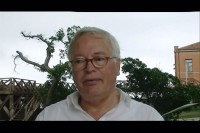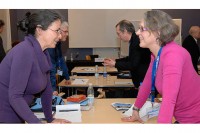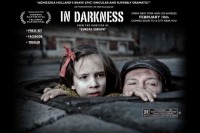Baltic films looking for Oscar nominations in the Best Foreign Language Film category are finding domestic box office success in Estonia and Finland.
FNE AVP Live ! Interview with UK MEP Mary Honeyball, member of the Culture and Education Committee of the EU Parliament. FNE asks Honeyball about Creative Europe and how the audiovisual industries of the smaller countries of the EU can better form partnerships with larger countries like the UK.
FNE AVP Live ! Interview with Detlef Rossman, President of CICAE, (International Confederation of Art Cinemas). FNE asks Rossman about digitalisation and the other challenges facing European distributors and exhibitors.
WARSAW: CARTOON MASTERS (www.cartoon-media.eu) is accepting applications for scholarships to its finance workshop for professionals from new MEDIA Programme/new EU member states. The deadline for applications is 12 October 2012.
PRAGUE: The 2012 catalogue of Czech documentary films in development, production or postproduction has been released along with data on the top documentaries in domestic release.
FNE Europa Distribution: Distributor of the Month. Hungary - Gábor Böszörményi, Mozinet Ltd.
Hungary 27-09-2012FNE together with Europa Distribution have launched its new Distributor of the Month series. In recognition of the hard work and excellence of European distributors and the common problems they face especially in the transition to digitalization we choose a distributor from each country covered by FNE each month.
ZAGREB: Writer/director Silvije Petranović is in production with The Brave Adventures of Lapitch, Croatia’s best-selling children’s novel, with a 2013 release timed to mark the book’s 100th anniversary.
MISKOLC: The Lithuanian Vanishing Waves by Kristina Buozyte won the Emeric Pressburger Prize of the 9th Jameson CineFest (14-23 September 2012). The Grand Prix of the festival, named upon Adolph Zukor, the Hungarian born founder of Paramount Pictures, went ex aequo to the Danish Teddy Bear by Mads Matthiesen and Peter Strickland's Berberian Sound Studio.
WARSAW: The TV Polska (www.tvp.pl) series The Deep End took the Best Series award at the 64th Prix Italia TV Festival, following its Gold Plaque at the Hugo TV Awards.
BATUMI: Agnieszka Holland's Oscar nominated In Darkness won the main award at the 7th Batumi International Art-House Film Festival (www.biaff.org).





























